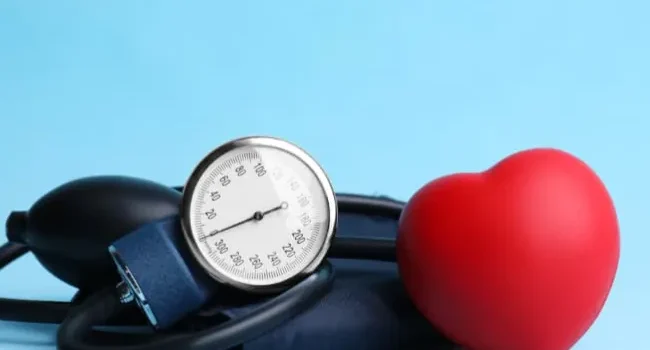Uncontrolled high blood pressure (hypertension) is a leading cause of chronic kidney disease (CKD), as it damages the blood vessels in the kidneys. In turn, kidney disease can lead to a form of high blood pressure known as renal hypertension, creating a harmful cycle. Understanding how hypertension and kidney health are linked is crucial for maintaining your well-being.
What Is Hypertension?
Blood pressure measures the force exerted by blood against the walls of your arteries as the heart pumps. Hypertension is defined as consistent readings of 130/80 mm Hg or higher. The top number (systolic pressure) measures pressure when the heart beats, while the bottom number (diastolic pressure) reflects pressure between heartbeats.
Hypertension often develops gradually, without noticeable symptoms. Over time, untreated hypertension can lead to serious health issues, including heart attacks, strokes, kidney failure, and blindness. Symptoms of dangerously high blood pressure may include headaches, dizziness, chest pain, and changes in vision.
How Hypertension Affects the Kidneys
The kidneys play a vital role in filtering waste and regulating fluid balance. However, high blood pressure can damage the blood vessels in the kidneys, causing them to become thickened and stiff. This reduces the blood flow to the kidneys, impairing their ability to filter waste and fluids effectively. As a result, waste accumulates in the body, and fluid balance becomes disrupted, which can further raise blood pressure.
In response, the kidneys attempt to compensate by working harder, which only accelerates their deterioration. This creates a vicious cycle where kidney function continues to decline, and blood pressure continues to rise.
Who Is at Risk for Kidney Disease Due to Hypertension?
Anyone with untreated hypertension is at risk of developing kidney disease. However, certain groups are more likely to be affected, including:
- African Americans
- Hispanics
- Native Americans
- People with a family history of kidney disease
- People with diabetes
- The elderly
Since early kidney disease and hypertension often present no obvious symptoms, many individuals are unaware of their condition. Regular screening and early intervention are crucial to preventing further damage.
What Is Renal Hypertension?
Renal hypertension refers to high blood pressure caused by kidney problems. Damaged kidneys have trouble regulating fluid balance, leading to the release of hormones that raise blood pressure. The most common cause of renal hypertension is the buildup of plaque in the renal arteries, which narrows the arteries and reduces blood flow. As blood flow decreases, the kidneys retain salt and water in an attempt to compensate, which raises blood pressure.
How Kidney Disease Contributes to High Blood Pressure
Healthy kidneys produce a hormone called renin, which helps regulate blood pressure by constricting or relaxing blood vessels. When the kidneys are damaged, this regulation becomes impaired, leading to further increases in blood pressure. Additionally, as waste and fluid build up in the body due to reduced kidney function, the heart must work harder to pump this extra volume of blood, which also raises blood pressure.
Diagnosing Hypertension and Kidney Disease
Because both hypertension and kidney disease often have no early symptoms, routine monitoring is essential. Your doctor will check your blood pressure regularly and may perform tests to assess kidney function, such as:
- Urine albumin levels: High levels of albumin in the urine indicate kidney damage.
- Glomerular filtration rate (GFR): A low GFR over several months suggests impaired kidney function.
- Creatinine levels: Elevated creatinine levels in the blood signal kidney problems.
- Imaging tests: Ultrasounds or CT scans may be used to examine the structure of the kidneys.
These tests are critical for early diagnosis and intervention to prevent further kidney damage.
Protecting Your Kidneys from High Blood Pressure
Controlling blood pressure is the most effective way to protect kidney health. There are several approaches to managing hypertension and preventing kidney damage:
- Medications: ACE inhibitors, ARBs, and diuretics can help lower blood pressure and reduce strain on the kidneys.
- Diet: A diet low in processed foods and sodium, and rich in fruits, vegetables, whole grains, and healthy fats, can help manage blood pressure.
- Exercise: Aim for at least 150 minutes of moderate exercise each week to strengthen the heart and keep arteries flexible.
- Weight management: Losing excess weight can significantly lower blood pressure.
- Stress management: Relaxation techniques, such as meditation, can help reduce the negative effects of stress on blood pressure.
- Smoking cessation: Quitting smoking reduces the strain on blood vessels and the heart.
In cases of renal hypertension, additional treatments may be required to improve blood flow to the kidneys, such as medications or procedures to clear blocked arteries.











